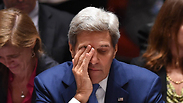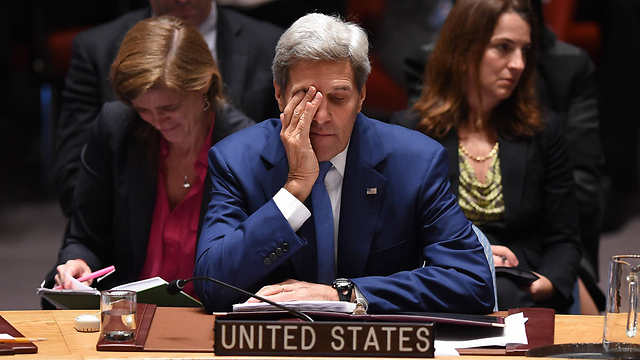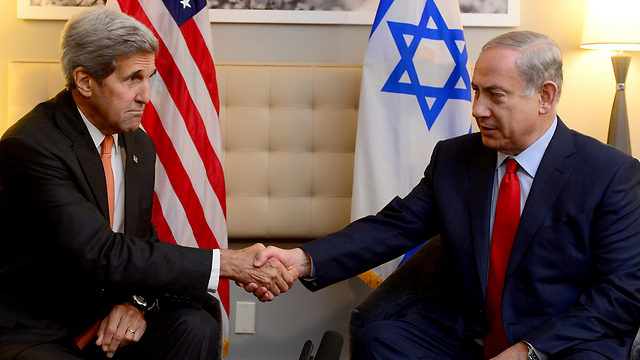
Speaking a day after Kerry announced his intent to visit the region to try to help reduce tensions, State Department Spokesman John Kirby said the secretary was not affixing blame when he said a "massive increase in settlements" over the past year had been followed by the current outbreak of violence. Kirby later said that the department had seen reports which may indicate excessive use of force by Israeli forces.
Kirby said Kerry had been consistent in "not trying to affix blame for the recent violence" but had discussed "the challenges that are posed on both sides by this absence of progress towards a two-state solution."
Kirby noted that Kerry had been "unequivocal" in condemning Palestinian attacks on Israelis. But he also said the department had reviewed an Oct. 9 stabbing of four Arab men in the Israeli town of Dimona and considered it an "act of terrorism" as well.
"He wants both sides to take the affirmative actions, both in rhetoric and in action, to deescalate the tensions, to restore calm, and to try to move forward toward a two-state solution," Kirby told a daily briefing.
Seven Israelis and 32 Palestinians, including assailants, children and protesters in violent anti-Israeli demonstrations, have been killed in two weeks of bloodshed.
Kerry has "highlighted our concern that current trends on the ground, including this violence, as well as ongoing settlement activity, are imperiling the viability of eventually getting to a two- state solution," Kirby said.
Kerry said on Tuesday evening he was working to calm violence between Palestinians and Israelis, and would travel to the region soon to try to move the situation "away from this precipice."
Kirby indicated that Kerry's plan to travel to the region did not necessarily mean he would go to Israel or the Palestinian territories.
"The secretary has made clear his concerns over what's going on there and his desire to travel to the region to engage and discuss and to try to find ways to reduce the tensions, restore the calm and then start to work, collaboratively hopefully, towards a two-state solution," he said.

















